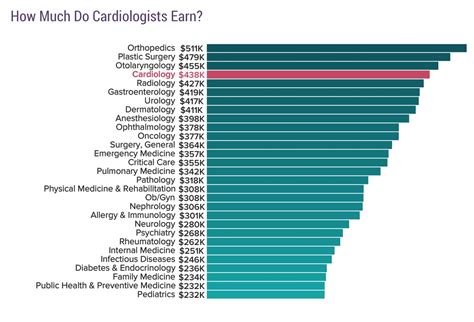Intro
Discover the perfect medical career for you! Explore various medical fields, including nursing, medical assisting, and healthcare administration. Learn about job responsibilities, required skills, and growth opportunities. Make an informed decision with our comprehensive guide, helping you choose the best medical career path that suits your interests and skills.
Are you considering a career in medicine, but unsure which path to take? With so many options available, it can be overwhelming to decide which medical career is best for you. Whether you're a student, a professional looking to transition, or simply someone passionate about healthcare, this article will guide you through the various medical careers, their requirements, and what to expect.
The demand for medical professionals is on the rise, driven by an aging population, advances in technology, and an increased focus on healthcare. According to the Bureau of Labor Statistics, employment of healthcare occupations is projected to grow 14% from 2020 to 2030, much faster than the average for all occupations. With so many opportunities available, it's essential to choose a career that aligns with your skills, interests, and values.
Types of Medical Careers

Medical careers can be broadly categorized into several fields, including:
- Clinical Medicine: This field involves working directly with patients to diagnose and treat medical conditions.
- Research and Development: Medical professionals in this field focus on discovering new treatments, developing new technologies, and improving existing ones.
- Healthcare Administration: This field involves managing healthcare facilities, policies, and programs.
- Allied Health: This field includes professionals who support the work of doctors and nurses, such as physical therapists, occupational therapists, and speech therapists.
Clinical Medicine Careers
Clinical medicine is a broad field that encompasses various medical careers, including:
- Physician: Physicians diagnose and treat medical conditions, prescribe medications, and perform surgeries.
- Nurse Practitioner: Nurse practitioners work under the supervision of physicians to provide primary and specialty care to patients.
- Physician Assistant: Physician assistants work under the supervision of physicians to provide medical care to patients.
- Dentist: Dentists diagnose and treat dental problems, perform surgeries, and prescribe medications.
Non-Clinical Medicine Careers

Non-clinical medicine careers involve working in healthcare without direct patient care. Some examples include:
- Medical Researcher: Medical researchers conduct studies, collect data, and analyze results to develop new treatments and technologies.
- Healthcare Administrator: Healthcare administrators manage healthcare facilities, develop policies, and oversee programs.
- Medical Writer: Medical writers create content for healthcare organizations, pharmaceutical companies, and medical device manufacturers.
- Health Educator: Health educators teach patients, families, and communities about healthy habits, disease prevention, and management.
Allied Health Careers
Allied health careers involve working in healthcare to support the work of doctors and nurses. Some examples include:
- Physical Therapist: Physical therapists help patients recover from injuries and illnesses, improve mobility, and manage pain.
- Occupational Therapist: Occupational therapists help patients develop skills for daily living, work, and leisure activities.
- Speech Therapist: Speech therapists help patients improve communication skills, speech, and language development.
Requirements and Education

The requirements and education for medical careers vary widely depending on the field and profession. Here are some general guidelines:
- Clinical Medicine Careers: Most clinical medicine careers require a bachelor's degree, followed by a medical degree (MD) or a doctor of osteopathic medicine (DO) degree.
- Non-Clinical Medicine Careers: Non-clinical medicine careers may require a bachelor's degree, master's degree, or doctoral degree, depending on the field.
- Allied Health Careers: Allied health careers typically require an associate's degree or a bachelor's degree.
Skills and Qualities
Medical professionals need a range of skills and qualities to succeed in their careers. Some essential skills and qualities include:
- Communication skills: Medical professionals must communicate effectively with patients, families, and healthcare teams.
- Compassion and empathy: Medical professionals must be able to provide emotional support and care to patients and families.
- Problem-solving skills: Medical professionals must be able to analyze problems, make decisions, and develop solutions.
- Attention to detail: Medical professionals must be detail-oriented and able to maintain accurate records.
Salary and Job Outlook

The salary and job outlook for medical careers vary widely depending on the field and profession. Here are some general guidelines:
- Clinical Medicine Careers: Clinical medicine careers tend to be high-paying, with median salaries ranging from $200,000 to over $600,000 per year.
- Non-Clinical Medicine Careers: Non-clinical medicine careers may have lower salaries, with median salaries ranging from $50,000 to over $200,000 per year.
- Allied Health Careers: Allied health careers tend to have lower salaries, with median salaries ranging from $40,000 to over $100,000 per year.
Job Outlook
The job outlook for medical careers is generally positive, with many fields experiencing growth and demand. Here are some general guidelines:
- Clinical Medicine Careers: Clinical medicine careers tend to have a high demand, with job growth rates ranging from 10% to over 20%.
- Non-Clinical Medicine Careers: Non-clinical medicine careers may have slower job growth rates, ranging from 5% to over 15%.
- Allied Health Careers: Allied health careers tend to have moderate job growth rates, ranging from 10% to over 20%.
Conclusion
Choosing a medical career can be a daunting task, but by considering your skills, interests, and values, you can find a fulfilling and rewarding career in healthcare. Whether you're interested in clinical medicine, non-clinical medicine, or allied health, there are many opportunities available. Remember to research the requirements, education, and salary for your desired career, and don't be afraid to reach out to professionals in the field for advice and guidance.
We hope this article has provided you with valuable insights into the world of medical careers. Share your thoughts and experiences in the comments below, and don't forget to share this article with others who may be interested in pursuing a career in medicine.
What are the most in-demand medical careers?
+According to the Bureau of Labor Statistics, some of the most in-demand medical careers include nurse practitioners, physician assistants, and healthcare administrators.
What are the highest-paying medical careers?
+According to the Bureau of Labor Statistics, some of the highest-paying medical careers include physicians, dentists, and pharmacists.
What are the most rewarding medical careers?
+According to various studies and surveys, some of the most rewarding medical careers include nursing, occupational therapy, and physical therapy.
